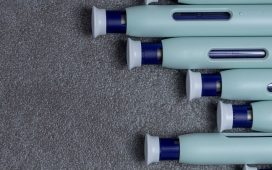Findings seen in patients with chronic pouchitis after ileal pouch-anal anastomosis for ulcerative colitis
By Elana Gotkine HealthDay Reporter
FRIDAY, March 31, 2023 (HealthDay News) — For patients with chronic pouchitis after undergoing restorative proctocolectomy with ileal pouch-anal anastomosis (IPAA) for ulcerative colitis, treatment with vedolizumab is more effective than placebo for inducing remission, according to a study published in the March 30 issue of the New England Journal of Medicine.
Simon Travis, D.Phil., from the University of Oxford in the United Kingdom, and colleagues conducted a phase 4 double-blind, randomized trial to assess vedolizumab in adults in whom chronic pouchitis developed after undergoing IPAA for ulcerative colitis. A total of 102 patients were randomly assigned to vedolizumab 300 mg or placebo on day 1 and at weeks 2, 6, 14, 22, and 30 (51 patients in each group). Patients also received concomitant ciprofloxacin from weeks 1 to 4.
The researchers found the incidence of modified Pouchitis Disease Activity Index (mPDAI)-defined remission was 31 and 10 percent with vedolizumab and placebo, respectively, at week 14. There were also differences in favor of vedolizumab versus placebo in mPDAI-defined remission at week 34, mPDAI-defined response at week 14 and week 34, and PDAI-defined remission at weeks 14 and 34. Serious adverse events occurred in 6 and 8 percent of patients in the vedolizumab and placebo groups, respectively.
“Among patients who had chronic pouchitis after undergoing IPAA for ulcerative colitis, treatment with vedolizumab was more effective than placebo in the induction of remission,” the authors write.
The study was funded by Takeda, the manufacturer of vedolizumab.
Copyright © 2023 HealthDay. All rights reserved.








